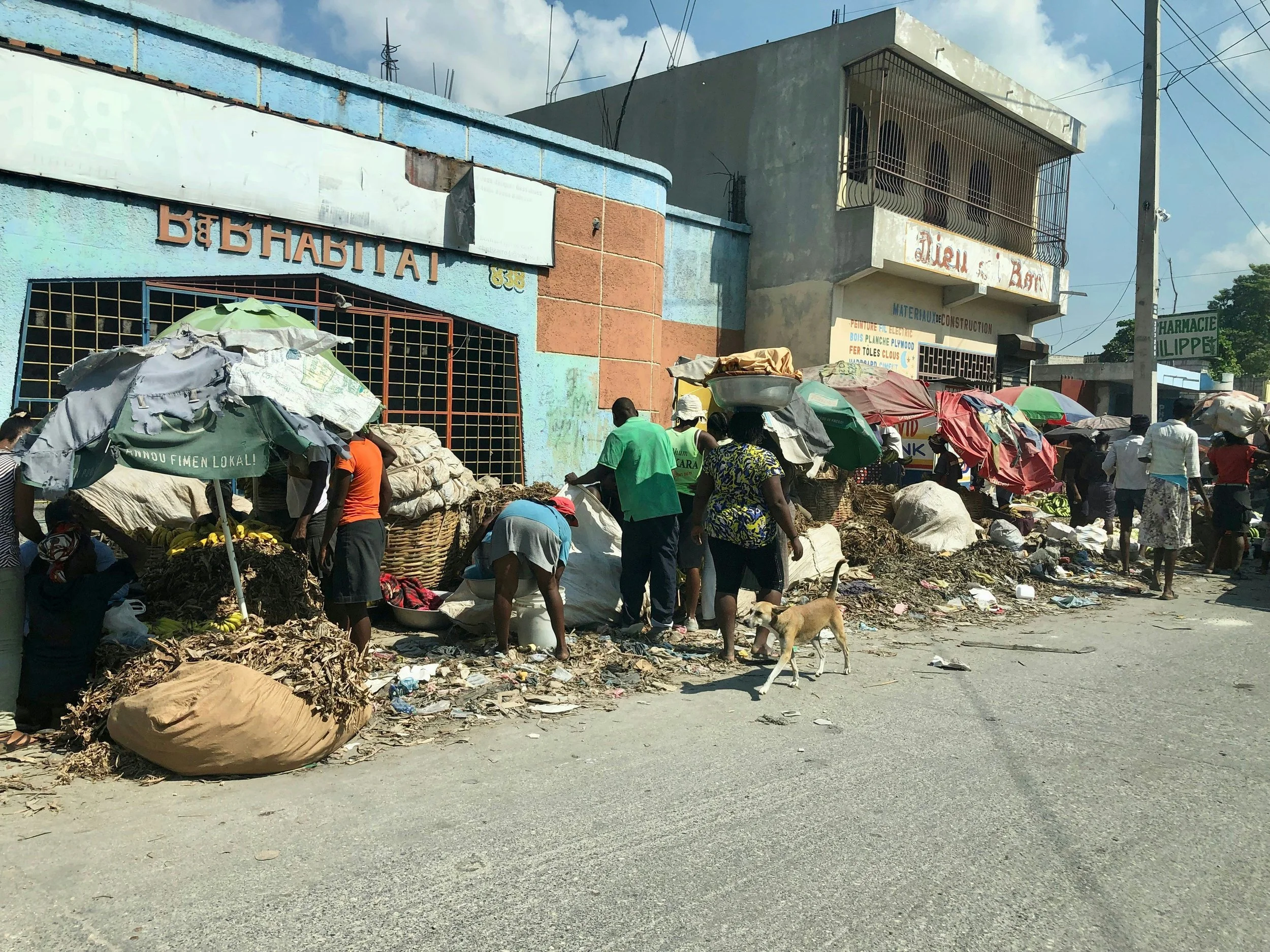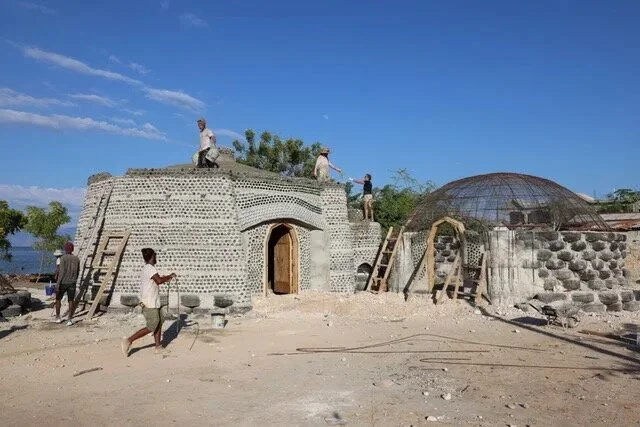
The History of Haiti
A powerful journey — from resistance and revolution to resilience
Haiti - History
Haiti’s history is unlike any other. It’s the story of a people who rose up against slavery and became the first Black republic in the world — a symbol of freedom and strength. But it’s also a history marked by struggle, natural disasters, foreign interference, and ongoing efforts to rebuild and reclaim power.
Before Colonisation – The Taíno People
Long before European ships arrived, the island now known as Haiti was home to the Taíno people, part of the Arawak cultural group. They lived in organised villages, farmed the land, and fished along the coast.
The Taíno called the island Ayiti, meaning “land of high mountains”
They had a rich culture, with their own language, beliefs, and political systems
Their diet included cassava, sweet potatoes, and seafood
Everything changed in 1492, when Christopher Columbus landed on the island and claimed it for Spain — renaming it Hispaniola. This marked the beginning of colonisation, disease, forced labour, and the rapid decline of the Taíno population.
“By the 1600s, the Indigenous population had nearly disappeared due to violence, slavery, and illness brought by colonisers.”
Colonial Haiti and Slavery Under France
In the 1600s, the western part of Hispaniola (now Haiti) came under French control and became one of the wealthiest colonies in the world — but at a terrible cost.
The colony, called Saint-Domingue, produced sugar, coffee, and indigo for export
To power this economy, hundreds of thousands of enslaved Africans were brought to the island
Conditions were brutal — Saint-Domingue had one of the highest slave mortality rates in the Americas
By the late 1700s:
Enslaved people outnumbered free people 10 to 1
Tensions were rising between slaves, freed people of colour, and white colonists
This explosive mix of cruelty, inequality, and revolutionary ideas set the stage for one of the most important uprisings in world history.
The Haitian Revolution (1791–1804)
The Haitian Revolution was the only successful slave revolt in history — and it changed the world.
In 1791, enslaved Africans in Saint-Domingue rose up against the French plantation system
The revolution was led by figures like Toussaint Louverture, Jean-Jacques Dessalines, and others
It lasted over a decade, involving battles with French, Spanish, and British forces
Despite extreme violence and betrayal, the revolutionaries persevered.
In 1804, Haiti declared independence from France
It became the first Black-led republic, and the first country in the Western Hemisphere to abolish slavery completely
This victory inspired enslaved people across the Americas — but it also led to isolation and punishment from colonial powers, who feared similar uprisings in their own territories.
Independence and Early Struggles
Haiti’s independence was a world-changing victory — but the new nation faced enormous challenges from the start.
After 1804:
The country was led by Jean-Jacques Dessalines, who declared himself Emperor but was assassinated two years later
Haiti was isolated thanks to embargoes and blockages by many countries, especially slaveholding powers like the U.S. and European empires
France demanded a massive "independence debt" — 150 million francs — in exchange for recognition, which Haiti paid over 100 years, crippling its economy
The 1800s and early 1900s:
Haiti was plagued by political instability, frequent leadership changes, and foreign pressure
The country split briefly into two separate governments before reuniting in 1820. However, the Dominican Republic sided with Royalist Spanish forces in 1844, establishing the two nations we know today on what is know as Hispaniola
Land reform, education, and infrastructure struggled under ongoing internal conflict
Still, Haitian people fought to protect their sovereignty, culture, and national identity.
Foreign Interventions and Dictatorships
Throughout the 20th century, Haiti faced foreign occupation, authoritarian rule, and economic hardship.
U.S. Occupation (1915–1934)
The United States invaded and occupied Haiti for 19 years, claiming to restore order
During this time, infrastructure was built, but so was resentment — many Haitians were forced into labour and denied self-rule
The occupation left behind a powerful military force, later used by dictators
The Duvalier Era (1957–1986)
François “Papa Doc” Duvalier ruled as a brutal dictator, followed by his son, Jean-Claude “Baby Doc”
The Duvaliers used violence, censorship, and the feared Tonton Macoute militia to crush opposition.
Thousands were killed, and billions in aid money disappeared into corruption.
Post-1986:
Haiti saw short-lived democratic governments, military coups, and U.N. peacekeeping missions.
Despite hopeful moments, political instability has remained a major challenge.
Jean-Bertrand Aristide, a former Salesian priest associated with liberation theology, won Haiti’s first broadly free presidential election in December 1990 with 67.5% of the vote. He took office on February 7, 1991, was overthrown by a military coup that September, and was reinstated in 1994 with international backing to complete his term. Aristide won again in 2000, served 2001–2004, and left amid an armed uprising and international pressure; he lived in exile (Central African Republic, then South Africa) before returning in 2011. His governments advanced symbolic cultural policies—most notably recognizing Vodou as an official religion in 2003—and promoted use of Creole in public life
What is the History of Earthquakes in Haiti?
Haiti sits on a major geological fault line, making it highly vulnerable to earthquakes — some of which have had devastating effects on the country.
Key earthquakes in Haiti’s history:
January 12, 2010 – A 7.0 magnitude earthquake struck near Port-au-Prince
Over 220,000 people died
More than 1.5 million were left homeless
Major buildings, including hospitals and schools, collapsed
International aid poured in, but long-term recovery has been slow and uneven
August 14, 2021 – A 7.2 magnitude earthquake hit southern Haiti
Over 2,200 people died, and tens of thousands of homes were destroyed
It struck during a time of political turmoil, just weeks after the president was assassinated
In addition to earthquakes, Haiti is often hit by hurricanes and floods, making recovery even harder. These disasters have deeply affected education, healthcare, and economic development.
Recent Events and Ongoing Challenges
In the 21st century, Haiti has continued to face a complex mix of natural disasters, political instability, and poverty — but also ongoing resilience and community strength.
Key recent events:
Presidential assassinations, delayed elections, and unrest have left power vacuums and weakened institutions
The impacts of the 2010 and 2021 earthquakes are still being felt, with many communities yet to fully recover
The COVID-19 pandemic strained already limited healthcare and education systems
Gang violence and insecurity, particularly in Port-au-Prince, have forced school closures and displaced families
Despite these challenges, many Haitians continue to fight for education, health, and justice
International organisations, local charities, and grassroots leaders are working to build a better future — but long-term, community-led support is still urgently needed.
Recent Events and Ongoing Challenges
2020–2021: Rising Unrest and Assassination:
January 2021: Mass protests erupted against President Jovenel Moïse's claim to extend his term by one year. Weekly demonstrations demanded his resignation.
7 July 2021: Moïse was assassinated in his private residence, plunging the country into a leadership vacuum.
8 July 2021: Interim Prime Minister Claude Joseph announced elections would proceed as planned, despite the assassination
2022–2023: Electoral Delays and Political Gridlock
February 2022: Prime Minister Ariel Henry called for renewed efforts to organize elections.
December 2022: Henry signed an agreement with political parties and civil society to hold elections in 2023, aiming for a new government by 7 February 2024.
February 2024: Henry postponed elections again, citing security concerns.










Every morning at Pi Gwo Byen begins with reflection, kindness, and the joyful call-and-response of “Ki Moun Nou? Pi Gwo Byen!” This daily ritual builds belonging, confidence, and a sense of identity that shapes each child’s future.